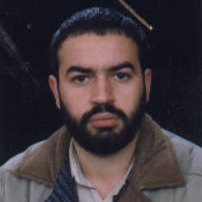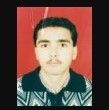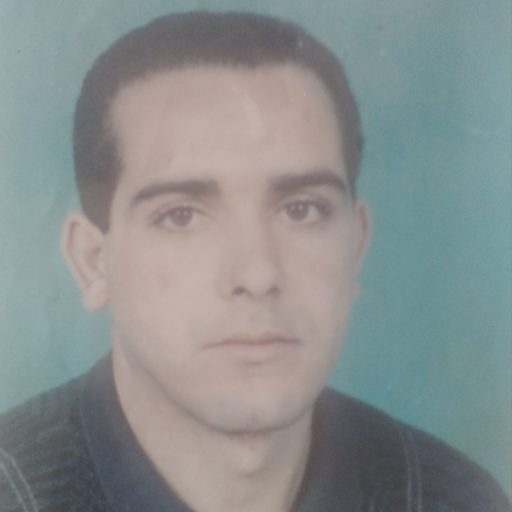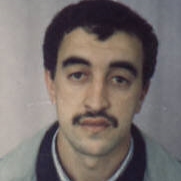
Djamel Saadoun
Date of arrest: 1996-03-07
Forces responsible: Gendarmerie
Summary
On March 7, 1996, at 5 p.m., the gendarmes of Bouzareah came to Djamel Saadoun’s home at in El Biar, with a conscription. Djamel Saadoun was surprised and told them that, as a student, he had been granted a deferment of military service. Djamel Saadoun was then taken to the Bouzareah gendarmerie along with 31 other people from his neighbourhood. The next day, they were sent to the transport camp, known as the “army muster centre”, about 50 km from Algiers, in the wilaya of Blida. On March 14, 1996, Djamel Saadoun was transferred to the Bechar camp. He stayed there for four days, during which time he underwent a medical examination. At the camp, he was told to put on a military uniform. On March 18, 1996, he was taken by bus to Abadla, 90 km south of Bechar, where his military training began on March 23, 1996. In June 1996, Djamel Saadoun’s mother, who was kept informed of her son’s whereabouts through letters sent by Djamel Saadoun himself, received a call from one of his friends, who was doing his military service in the same camp and unit as her son. He told her that Djamel Saadoun was no longer in the camp with them, that the regimental commander had one day come to tell Djamel Saadoun to get ready to leave. None of the members of his family have seen Djamel Saadoun or received any news of him since.
Steps taken
1996-2007: Djamel Saadoun’s parents send numerous written requests to all relevant military, civil, judicial and administrative bodies asking for an explanation as to what might have happened to their son.
1996: His family lodges a complaint for “abduction” with the Bechar Court against an unknown person or persons, but to no avail.
July 30, 1996: His family sends letters to the President of the Republic, the Minister of Interior, the Minister of Justice, the Ombudsman and the Chair of the National Human Rights Observatory.
March 9, 1998: The National Human Rights Observatory acknowledges receipt of the application stating that Djamel Saadoun had indeed been arrested “on 7 March 1996 by the security services of the Bouzareah gendarmerie following receipt of a telegram (No. 574 of 3 February 1996) from the head of military service in Algiers.
December 23, 2001: His family lodges a complaint with the National Advisory Commission for the Promotion and Protection of Human Rights.
July 8, 2002: His family lodges another complaint with the National Advisory Commission for the Promotion and Protection of Human Rights.
July 20, 2002: The National Advisory Commission for the Promotion and Protection of Human Rights replies that: “according to the services concerned, [Djamel Saadoun] was apprehended at his home on 7 March 1996 by the security services for involvement in subversive activities”.
September 1, 2002: His family seeks clarifications from the National Advisory Commission for the Promotion and Protection of Human Rights, to no avail. On the same day, his family addresses a complaint to the Chief of Staff of the National People’s Army, but to no avail.
August 19, 2003: The Collectif des familles des disparu(e)s en Algérie requests the intervention of the UN Working Group on Enforced or Involuntary Disappearances on behalf of Djamel Saadoun’s family.
October 27, 2007: The city police advises Djamel Saadoun’s family that they should apply to the Ministry of Defence.
January 8, 2008: The Public Prosecutor at the Cherchell Court summons the family’s lawyer and advises him to file a complaint with the Public Prosecutor of the wilaya of Bechar.
June 30, 2008: Having exhausted all domestic remedies, Djamel Saadoun’s family seizes the UN Human Rights Committee.
Decision of the Human Rights Committee
Prohibition of torture and cruel or inhuman treatment (including in relation to the authors), right to liberty and security of person, recognition as a person before the law and right to an effective remedy (including in relation to the authors).
The State party must provide the family of Djamel Saadoun with an effective remedy, including by: (a) conducting a thorough and effective investigation into the disappearance of Djamel Saadoun; (b) providing the family with detailed information about the results of its investigation; (c) releasing Djamel Saadoun immediately if he is still being detained incommunicado; (d) in the event that Djamel Saadoun is deceased, handing over his remains to his family; (e) prosecuting, trying and punishing those responsible for the violations committed; and (f) providing adequate compensation to the family for the violations suffered and to Djamel Saadoun, if he is still alive. The State party should ensure that it does not impede enjoyment of the right to an effective remedy for crimes such as torture, extrajudicial killings and enforced disappearances. The State party must also take steps to prevent similar violations in the future.




